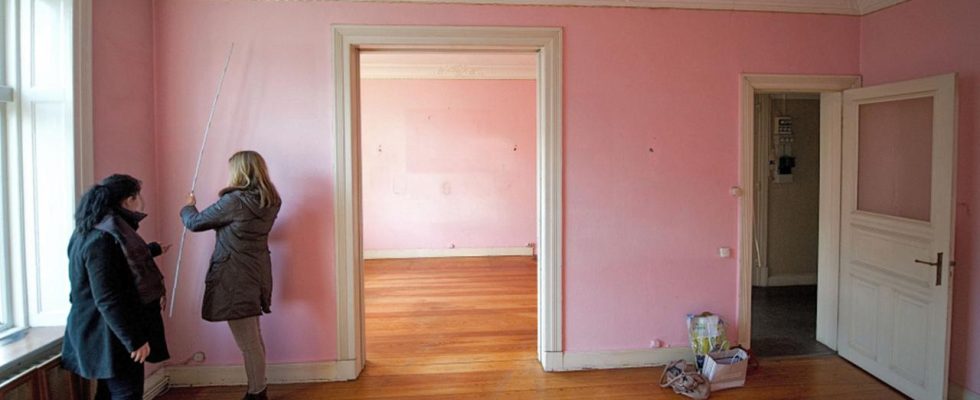Germans are more likely to leave the apartment they share with their parents than the EU average. The main reasons for living with their parents for a long time are low income and expensive housing.
Young adults in Germany leave home earlier than the average EU citizen. This was the result of an evaluation by the Federal Statistical Office. According to a current study, the reasons for this lie primarily in the different income situations, but also in the available living space.
The average age when people left their parents’ four walls in Germany in 2022 was 23.8 years. This was reported by the Federal Statistical Office, citing figures from the European statistics agency Eurostat.
Women move out earlier
On average, young women and men left home earlier than the EU average, which is 26.4 years. According to the data, more than a quarter (27.2 percent) of 25-year-olds in Germany still lived in their parents’ household, compared to 9.2 percent of 30-year-olds. In terms of gender, women were more likely to move out of the parental household in Germany last year; their average age when they moved out was 23.0 years, that of men 24.5 years.
In an EU-wide comparison, there are clear differences in the age at which people move out: young people in Finland (21.3 years), Sweden (21.4 years) and the Netherlands (23.0 years) are significantly more likely to leave their parents’ home. Young Croatians live the longest with their parents (33.4 years). In Spain (30.3 years) and Italy (30.0 years), the age at which people move into their own four walls for the first time is well above the EU average.
Income and rental costs as decisive factors
The main reasons for this are likely to be the economic and financial situation of the next generation. The researchers at the Institute for Financial Market Research (SAFE) in Frankfurt have investigated the reasons for the differences in the age of departure in Germany and Italy. They looked at the role of family coexistence and other factors such as income profiles, housing policies and the desire for independence.
According to the study published today, lower wages are one of the reasons for the higher departure age in Italy. High rents contribute to the fact that young adults cannot afford to move out or buy their own property. Young Italians often have no choice but to live with their parents longer.
Italy as a negative pioneer?
“We then adapted the German housing and rental market in our model to the Italian situation,” says study author Alexander Ludwig. On this comparable basis, more Germans, like their Italian peers, would continue to live with their parents because it would not be affordable for young adults to live alone.
However, the development of rents and the scarcity of affordable living space in Germany could in future mean that young adults in this country too will have to stay longer in their parents’ home or will only be able to move out of it via shared accommodation. Living space is becoming scarcer and more expensive in Germany. The government coalition is currently discussing a rent cap. The number of building permits has declined in recent months.

